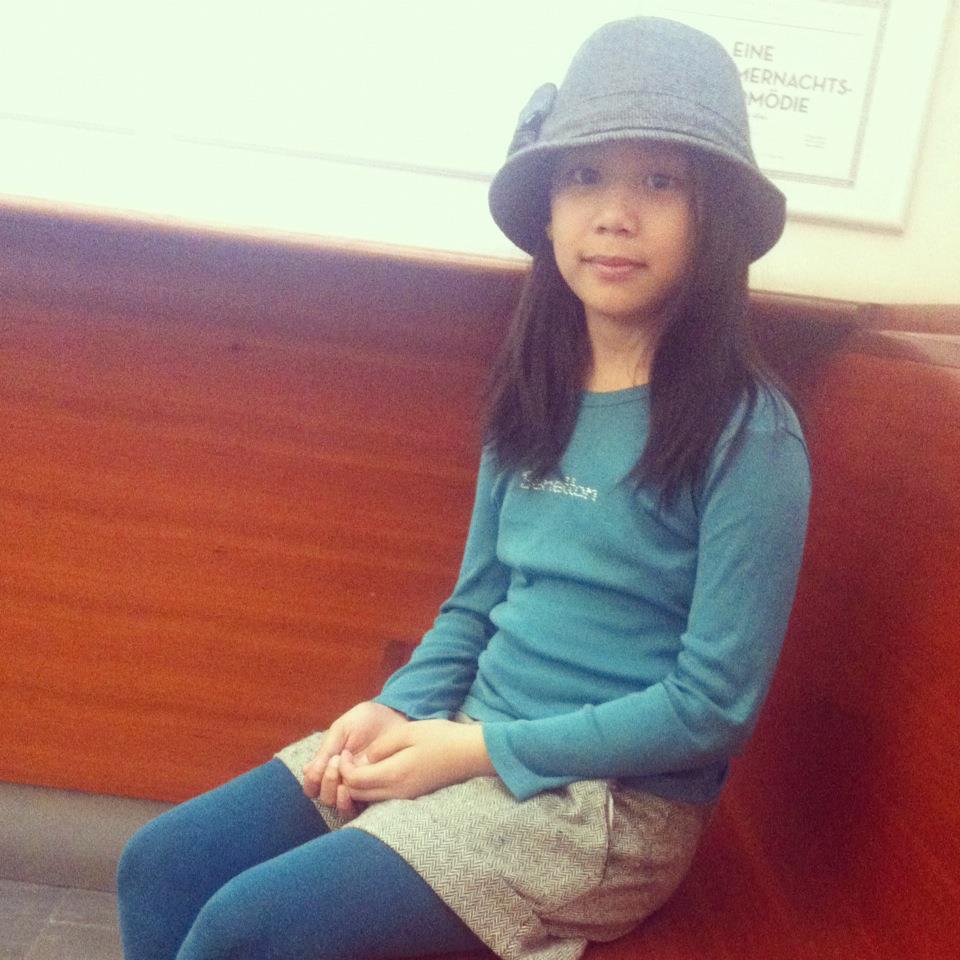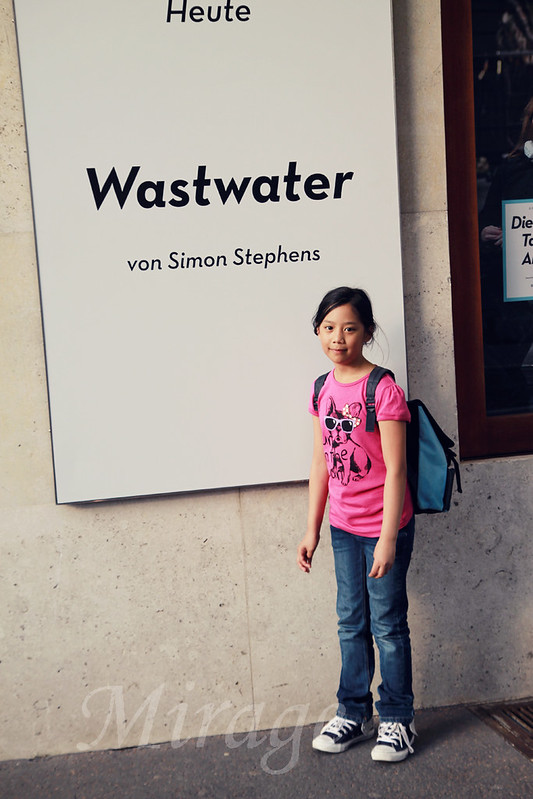
Dear Daughter on a Theater Gig – Performing at the Akademietheater : Her costume
So after her dance performance with her friends and classmates, daughter said she wanted to try theatre. Coincidentally, a friend sent a message saying that someone is looking for a kid to perform for a role of an orphan child for a play at the Akademietheater. We went to audition, and they actually took 3 kids to alternate for the role. The play would start at 8 in the evening and ends up at over 9. And there would be three performances a week.
The play was called Wastwater (by Simon Stephens). While the title refers to Lake District’s deepest water, the play tackles the dark side of humans and is rather not for children as it is about child-trafficking and other related sad reality.

Dear Daughter on a Theater Gig : Waiting at the Burgtheater
Table of Contents
Role
The kids’ role is an orphan child that would appear at the end of the play. It is a non-speaking role, and they were only required to go near the stage 10 minutes before they appear. So they really have no idea what the whole play is about.
Which was somehow comforting to know, as the theme is not suited for young audiences. ^_^
This wasn’t her first paid gig, but she’s still excited to get some money out of performing.

Dear Daughter on a Theater Gig : The Akademietheater
Rehearsals
The play runs at the Akademietheater at the first district, but we rehearsed in a building at the Military History Institute in the 3rd district.
It wasn’t a lot of rehearsals because the role is minimal. The kids were briefed on what they have to do and they would practice for half an hour. The time spent travelling to the rehearsal area was longer than the practice itself. ^_^
But we did enjoy going about, the two boys tagged along whenever we go for rehearsals, then we’d have lunch or snacks along the way.

Dear Daughter on a Theater Gig : By the theater
Before Performances
As the two older kids have school until 12:00 or 1:00, we would have lunch when home. Do some homework, get ready and go earlier to the Akademietheater. Call time is at 7, so when we are in the area close to 6:30 we would walk around the Ringstrasse, or hang out at McCafé and have some snacks.
The sweets give them kids some extra sugar-energy, but I always have packed dinner so they can eat a proper meal later. We would then wait at the dressing room (solely ours) and have A ready while I write a little, and the boys goof around as they always do. They could also do their homeworks in between, and whoever gets hungry gets to eat, too.
At quarter to 9, an actor would pick A up from the dressing room and bring her to where the stage is and wait for her turn to appear in the play. (She mentioned that they have to go around behind the stage). A few minutes more and she will be brought back to the dressing room, and she’d get dressed and off home we go.

Dear Daughter on a Theater Gig : Having sweets first
Theater Performance Take Aways
This experience was quite fun but also tiring. Having to be home late and with school the next morning is not ideal for an 11-year-old kid. But the experience was fun for her, and she would have something to look back to when she’s older.
Would we do it again? Yes, should she be willing. However, I noticed that her interest fluctuates. She said she wanted to learn the flute and then the piano back in the days, which she did. Then she wanted to try dancing, and now it’s theater so I’m not sure what she would want to try in the future. Let’s see.

Dear Daughter on a Theater Gig : stage setup
Benefits of Theatre
As theater does have good benefits for kids and for us, helping them develop a wide range of skills and attributes that are valuable both on and off the stage, we really hope she gets a lot of lessons. Here are some I think, she gained or had from participating:
-
Confidence and Self-Esteem: Performing on stage allows kids to overcome stage fright and gain self-confidence. As they master their roles and receive positive feedback, their self-esteem grows.
- Communication Skills: Theatre teaches kids how to articulate and project their voices, enunciate clearly, and use body language effectively. These skills enhance their communication abilities in everyday life.
- Creativity and Imagination: Theatre encourages kids to explore their creativity and imagination as they step into different characters and scenarios. This fosters their creative thinking and problem-solving skills.
- Empathy and Understanding: Portraying various characters and their emotions helps kids develop empathy and a deeper understanding of different perspectives, cultures, and emotions.
-
Teamwork and Collaboration: Theatre productions involve cooperation with directors, cast members, and crew. Kids learn the importance of working together, respecting others’ contributions, and achieving shared goals.
- Sense of Achievement: Successfully performing in a play or musical gives kids a sense of accomplishment and pride in their abilities.
- Appreciation for the Arts: Being involved in theatre exposes kids to the world of performing arts, fostering an appreciation for theatre, music, dance, and storytelling.

Dear Daughter on a Theater Gig : at the dressing room getting ready


